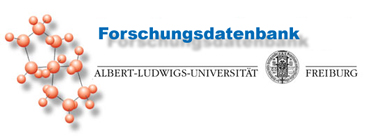| [Zurück zum Forschungsbericht] |
 |

"Creation and biological analysis of tumors in novel protease gene knockout models." (Workpackage 2.1) "Detailed spatio-temporal examination of specific proteases and inhibitors in spontaneous mouse cancer models." (Workpackage 2.2) Project full title: "Extracellular Proteases and the Caner Degradome: Innovative Diagnostic Markers, Therapeutic Targets and Tumour Imaging Agents."
Projektbeschreibung:Workpackage 2.1: Genetic dissection of tumour biology in genetically modified mice continues to be one of the most powerful means of defining important molecules and their precise function(s). The only major disadvantage of the approach is the time it takes and the associated costs. Thus, in a joint effort as we are proposing, it is imperative to choose a few good standard tumour models in which to study the roles of proteases and associated molecules. Consortium members are already working with such models, in particular the FVB/N-TgK14-HPV16 and the FVB/N MNTV-PymT transgenics, and we will focus on the analysis of these models in the first 18 month pla. We are presently analysing the consequences of loss of individual MMPs and plasminogen-activation system components. We will now start the generation of transgenic, tumour-prone mice that have simultaneous definciencies in 2 proteases, such as 2 MMPs, also to examine possible functional overlaps. Workpackage 2.2: We will generate a detailed expression map of proteolytic components in the FVB/N MMTV-PymT model and the FVB/N-TgK14-HPV1 mice developing skin cancer. Expression profiling will focus on the analysis of metalloproteinase and serine proteases an related genes. Tumours in all stages of development will be isolated. Classical immunohistochemistry and in situ hybridization will be done. Quantitative RT-PCR analyses will be performed in combination with Laser Capture Microdissection, using separated malignant epithelium and stromal cells. These data will be compared with the corresponding data from cluster 3, and will allow us to draw conclusions about which aspects of human disease are recapitulated in the murine models.Projektlaufzeit:
Weitere Informationen: http://www.mol-med.uni-freiburg.de/
Ansprechpartner: Prof. Dr. Christoph Peters
Tel: +49 761 2039600
Email: christoph.peters@mol-med.uni-freiburg.de
Projektbeginn: 2004Projektleitung:
Projektende: 2007
Prof. Dr. Christoph PetersKooperationspartner
Stellvertretung: Dr. Thomas Reinheckel
Albert-Ludwigs-Universität Freiburg
Institut für Molekulare Medizin und Zellforschung (IMMZ)
Zentrum für Biochemie und Molekulare Zellforschung (ZBMZ)
Stefan-Meier-Str. 17
79104 Freiburg i. Br.
Telefon: +49-761-203-9600/9601
Fax: +49-761-203-9602
Email: christoph.peters@mol-med.uni-freiburg.de
http://www.mol-med.uni-freiburg.de
D. Edwards; K. Dano, M. Johnsen, G. Hoyer-Hansen; F. Blasi; J.M. Foidart, A. Noel; C. Lopez-Otin; G. Murphy; K. Tryggvason; H. Jornvall; V. Dive; B. Travitian; R. Paridaens; V.-M. Kahari; O. Kallioniemi; B. R. Binder; W. Bode; A. Yiotakis; L. Edman; T. Lah; G. Taraboletti; K. Brand; A. Baker; M.-C. Rio; A. Krueger; H. Brandstetter; N. Fusenig, M. Müller; F. Kiessling; P. Andreasen; P. Stoppelli; P. Ragno; F. X. Gomis-Rueth; S. Ye; H. Spolders; T. Mercey; G. Sledgers; J. Kos; G. SauterFinanzierung:
- EU, Framework 6, EU
Aktueller Forschungsbericht